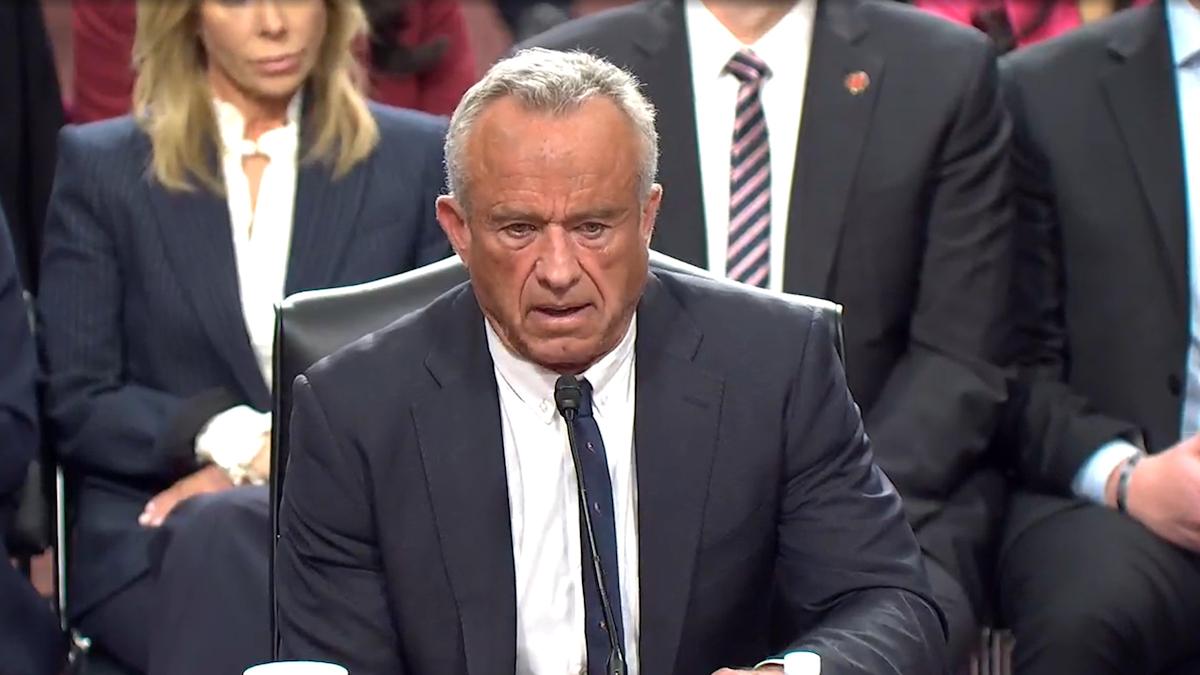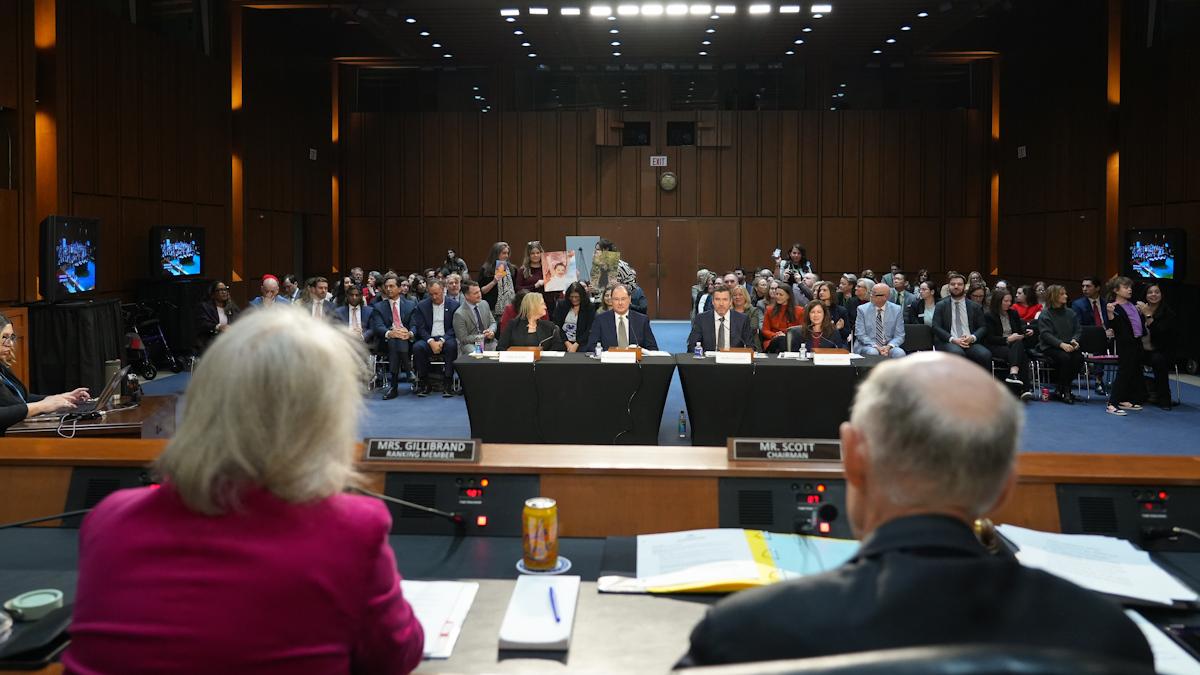Vaccines dominate questioning at RFK Jr's first hearing

Robert F Kennedy Jr's first confirmation hearing was a fractious affair, marked by tough questions about his prior anti-vaccine stance, as well as his position on abortion, the food industry, and drug pricing.
President Trump's nominee to be head of the Department of Health and Human Services (HHS) was repeatedly asked to explain his stance on vaccines at the Senate Finance Committee hearing, particularly in the context of his role as head of Children's Health Defense, which has cast doubt on the safety of childhood vaccinations and continues to promote the discredited idea that vaccines can cause autism.
Kennedy insisted at several points during the hearing that he was not an anti-vaxxer, saying: "I support the measles vaccines, I support the polio vaccine. I will do nothing as HHS Secretary that makes it difficult or discourages people from taking those vaccines."
In response, Democrat Senator Ron Wyden said: "Anyone who believes that ought to look at the measles book you wrote saying parents have been misled into believing measles is a deadly disease."
Independent Senator Bernie Sanders continued the questioning by asking Kennedy whether he supported baby onesies sold by Children's Health Defense with anti-vaccine slogans like "No vax, no problem!"
Kennedy responded by saying he was supportive of vaccines, but when pressed declined to say he would tell the organisation to stop selling the onesies, claiming that he no longer has any power over its actions after resigning from the board.
Sanders retorted that, given Kennedy stepped down just a few months ago, he must still have influence. "You can make that call," he said.
Democrat Senator Elizabeth Warren took up the baton on the vaccine questioning by asking him about "dangerous conflicts of interest and record of profiting from anti-vaccine conspiracies," claiming that he made $2.5 million in referral fees from a legal firm bringing lawsuits against pharma companies and gets a 10% contingency fee if they win.
Kennedy initially said he would not accept any compensation from lawsuits against drug companies while in office, saying: "I will certainly commit to that while I'm Secretary," but did not respond to suggestions he should do so for four years after stepping down.
Warren also accused him of backtracking, saying he had not clearly committed to ending this arrangement and could therefore profit from anti-vaccine lawsuits he could influence as HHS Secretary.
She suggested that, in office, Kennedy could publish anti-vaccine materials on government letterhead, which could influence juries, and could appoint people to the CDC vaccine panel who share anti-vax views.
Other means of influence could include removing vaccines from the schedule and special compensation programmes, making more injuries eligible for compensation even if there is no causal evidence, and changing vaccine court processes to make it easier to bring junk lawsuits.
"As Secretary of HHS, Robert Kennedy will have the power to undercut vaccines and vaccine manufacturing across our country," said Warren. "And for all his talk about 'follow the science' and his promise that he won't interfere with those of us who want to vaccinate our kids, the bottom line is the same: Kennedy can kill off access to vaccines and make millions of dollars while he does it. Kids might die, but Robert Kennedy can keep cashing in."
On the topic of abortion, Kennedy said: "I agree with President Trump that every abortion is a tragedy [and] we cannot be a moral nation if we have 1.2 million abortions a year," adding that states should have the power to control pregnancy terminations.
Kennedy also said that he would find new ways to tackle high drug prices, adding that the Trump administration intends to preserve Medicare's authority to negotiate drug prices and push for pharmacy benefit manager (PBM) reform.
He also said he would address the root causes of America's obesity epidemic by reducing processed food consumption and carrying out more research into additives and chronic diseases.
Kennedy faces a second confirmation hearing on Thursday before the Health, Education, Labor and Pensions (HELP) committee. The two committees will then vote on his confirmation before it can pass on to the full Senate for consideration.












